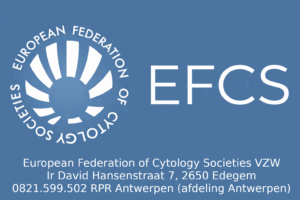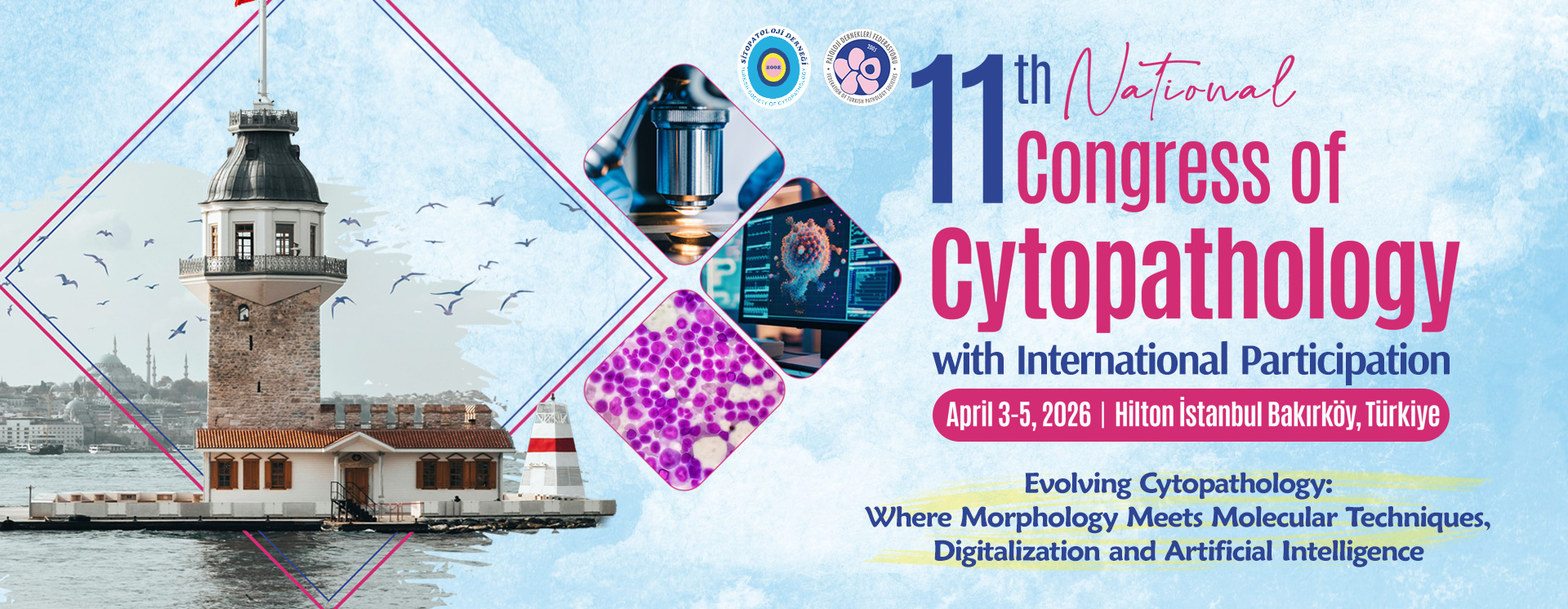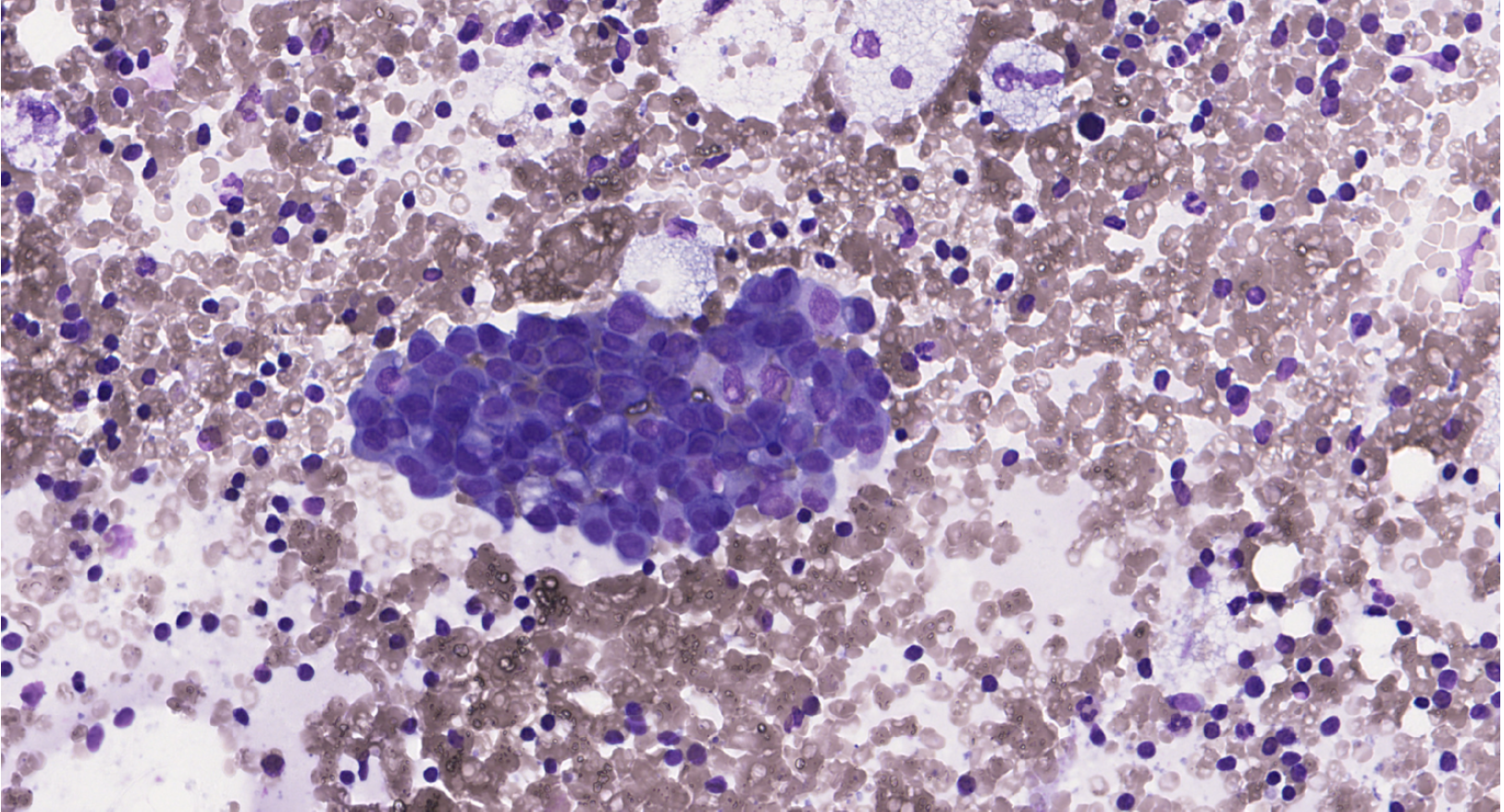Announcement for the 11th national congress of Cytopathology
Dear Friends and Colleagues,
On behalf of Turkish Society of Cytopathology and the Federation of Turkish Pathology Societies, it is our great privilege to extend to you a cordial welcome to the 11th National Congress of Cytopathology, with International Participation, to be held from April 3–5, 2026, at the Bakırköy Hilton Hotel in Istanbul, Türkiye.
The field of cytopathology continues to evolve rapidly, with advances in molecular diagnostics, digital applications, artificial intelligence, and integrative approaches significantly enhancing our role in patient care. This congress has been designed to provide a comprehensive scientific program that reflects these developments while also addressing the challenges faced in daily practice. Internationally renowned experts will share their insights through keynote lectures, symposia, and interactive sessions, ensuring a rich academic experience for all participants. Simultaneous English to Turkish and Turkish to English translation will be available in the main hall.
We are delighted to announce the lauch of our dedicated website for the congress at https://cytopathology2026.org/. Please visit our website for the scientific programme. A highligt of the congress will be the participation of esteemed international speakers, including
- Syed Z. Ali, MD, FRCPath, FIAC, Professor of Pathology and Radiology, Director of Cytopathology, The Johns Hopkins Hospital, the President of International Academy of Cytology (IAC) and the Chair of International Board of the IAC, Baltimore, USA
- Barbara Ann Centeno, MD, MIAC, Professor of Pathology, Director of the Cytopathology Laboratory, H. Lee Moffitt Cancer Center and Research Institute, Tampa, Florida, USA
- Güliz A. Barkan, MD, FIAC, FABP Professor of Pathology and Urology, Director of Cytopathology Fellowship Program, Director of Cytopathology,Loyola University Medical Center, Illinois, USA
- Alex Baras, MD, PhD, Leon Troper Professorship in Computational Pathology, Associate Professor of Pathology, Urology, and Oncology, Director of Computational Pathology & Informatics, Sidney Kimmel Comprehensive Cancer Center, Johns Hopkins University School of Medicine, Baltimore, USA
- Akif Demir, MD, Senior Pathologist and Cytopathologist, Amager og Hvidovre Hospital, Copenhagen, Denmark
- Spasenija Savic Prince, MD, Professor of Pathology, Institute for Medical Genetics and Pathology, University Hospital of Basel, Switzerland
- Sara E. Monaco, MD, Professor of Pathology Division, Chief of Cytology & Northeast Pathology Program Director, Geisinger Cytopathology Fellowship, President Elect of American Society of Cytopathology (ASC), Department of Laboratory Medicine, Geisinger Medical Center Danville, Pennsylvania, USA
- Panagiota Mikou MD, MSc, PhD, FIAC, Head of Cytopathology Department, Laiko Hospital, Athens, Greece
Our meeting will also serve as a vital forum for collaboration. By bringing together colleagues from diverse backgrounds and regions, we aim to foster dialogue, strengthen professional networks, and encourage innovative research that will shape the future of our discipline.
The congress takes place in Istanbul, a city of remarkable historical and cultural significance, uniquely situated at the crossroads of Europe and Asia. We hope that, alongside the scientific sessions, you will take the opportunity to discover the city’s extraordinary heritage and enjoy the hospitality for which Turkey is renowned.
We warmly invite you to join us in April 2026 for what promises to be a memorable and enriching congress, both scientifically and culturally. Your participation is what will make this event truly exceptional.
With warm regards,
Irem ONUR, MD
The President of Turkish Society of Cytopathology



